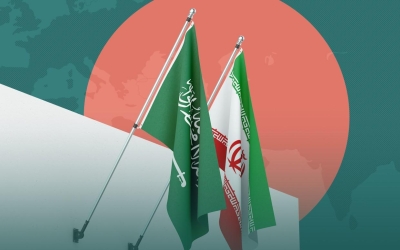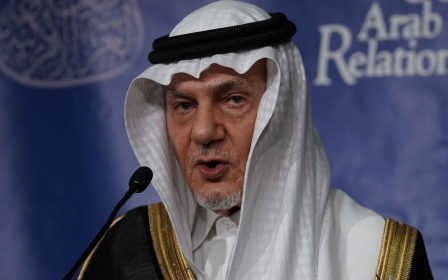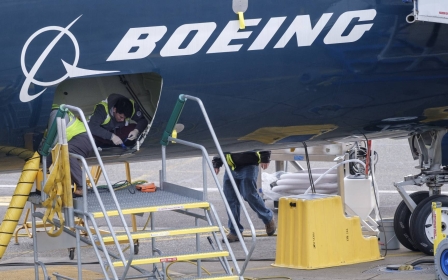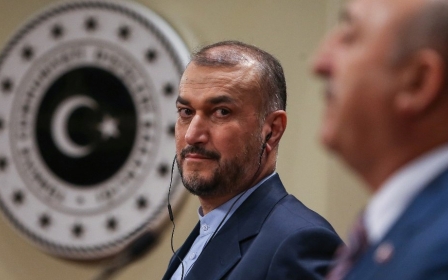Saudi-Iran reconciliation: Riyadh investments could start 'very quickly' following deal
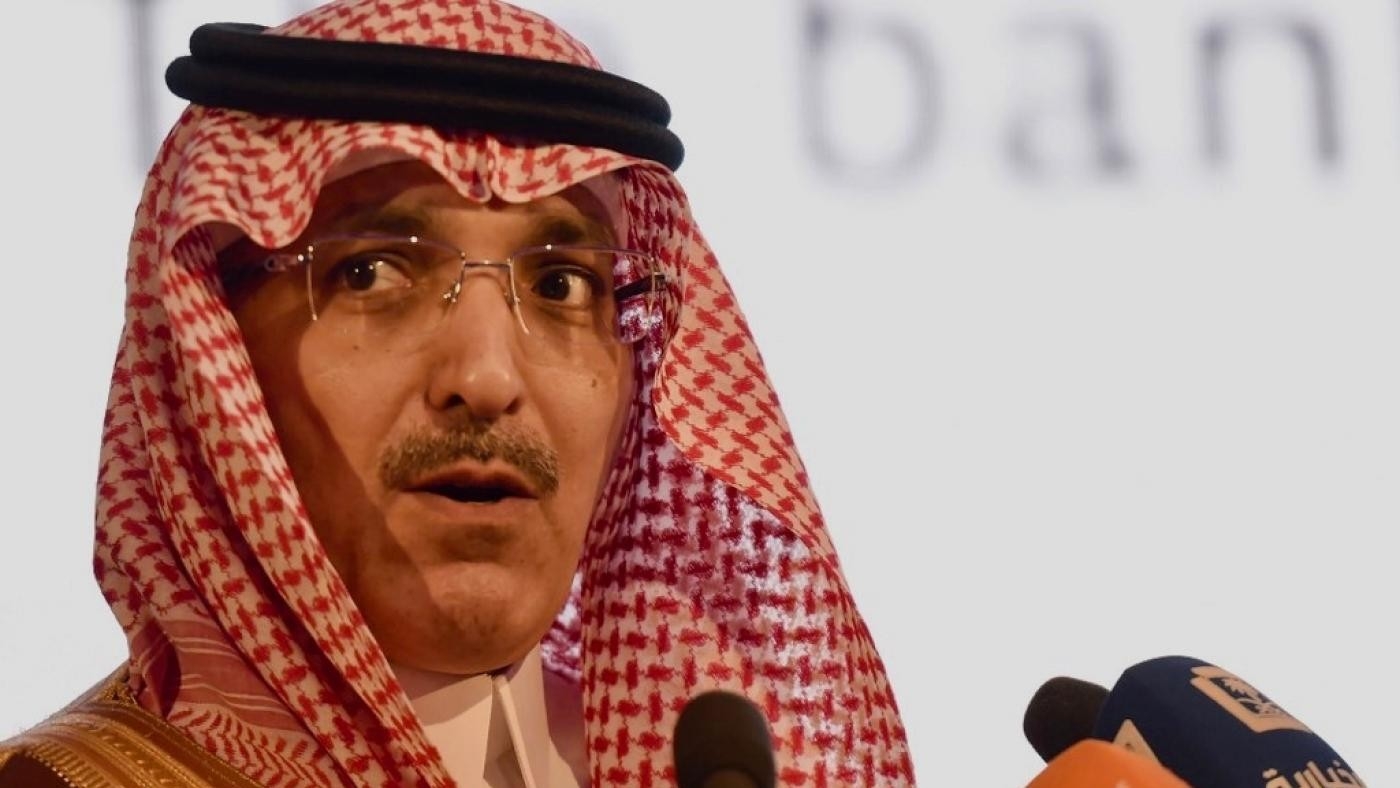
Saudi Arabia's finance minister, Mohammed Al-Jadaan, said on Wednesday that Saudi investments in Iran could happen "very quickly", following a reconciliation deal between the two countries last week which was brokered by China.
Speaking during a private sector forum of Saudi Arabia's sovereign wealth fund, Jadaan said that “there are lots of opportunities for Saudi investments in Iran.
“We don't see impediments as long as the terms of any agreement would be respected,” he added.
The news that Riyadh is seriously considering investing in Iran, a country heavily sanctioned by the West, is likely to raise eyebrows in Washington, historically one of the kingdom's closest allies.
Following Chinese-led negotiations, Tehran and Riyadh agreed to resume diplomatic relations last week and reopen embassies within two months, according to a statement released by both sides.
New MEE newsletter: Jerusalem Dispatch
Sign up to get the latest insights and analysis on Israel-Palestine, alongside Turkey Unpacked and other MEE newsletters
'Iran can learn so many things from the reform that Saudi Arabia is introducing to its society'
- Najah al-Otaibi, Saudi policy analyst
They also vowed to affirm "the respect for the sovereignty of states and the non-interference in internal affairs of states".
The agreement was a significant step after years of mutual animosity, suspected attacks, internal interference and proxy wars across the region.
Diplomatic relations between the two countries have been strained since the 2016 execution in Saudi Arabia of the Shia cleric Nimr al-Nimr, a critic of the Saudi monarchy, and dozens of his supporters.
In the wake of Nimr's execution, attacks by Iranian protesters on the Saudi embassy in Tehran prompted Riyadh to cut diplomatic ties with Iran.
After decades of sanctions the Iranian economy is in desperate need of investments. A Saudi injection of cash, however, will likely depend on how quickly both sides can rebuild trust.
"Iran is our neighbour, and has been and will continue to be for hundreds of years," Jadaan said, adding that cross-investment is on the agenda.
Tensions had also been exacerbated by the Saudi-led war on Iran-aligned rebels in Yemen since 2015 and the deaths of hundreds of Iranian Hajj pilgrims in a stampede in Mecca in the same year.
A new page
Dr Najah Al-Otaibi, a Saudi policy analyst based in London, said the comments of the Saudi finance minister mark "an interesting development. I think the deal is promising,” she told Middle East Eye.
While the two countries have unresolved issues across the region, including Syria, Lebanon, Yemen and Iraq, Otaibi said that beyond politics, "economic collaboration between the two countries can flourish”.
The Iranian and Saudi economies could mutually benefit from greater economic exchange, she added. “Iran can help Saudi Arabia in its Vision 2030.
“There are many opportunities, whether in science, technology, sport or culture. This is something I think both countries can benefit from,” said Otaibi.
As part of the agreement reached in Beijing, Iran and Saudi Arabia agreed that previous cooperation accords, such as the Security Cooperation Agreement from 2001 and a General Agreement for Cooperation from 1998, covering trade, economy, sports, technology, science, culture and youth, would also be revived.
“Saudi Arabia is witnessing a huge change in societal development, and Iran can learn so many things from the reform that Saudi Arabia is introducing to its society," said Otaibi. "And the countries have - or share some - cultural similarities.”
Then there is the US, which was not part of the deal and, according to analysts, has been taken by surprise at the speed of events.
“Because the deal has been brokered by China, Iran might not be able to benefit fully from the economic opportunities with Saudi Arabia because of the sanctions imposed by the United States,” said Otaibi, adding that the US “might not be keen to remove all these sanctions.”
Middle East Eye delivers independent and unrivalled coverage and analysis of the Middle East, North Africa and beyond. To learn more about republishing this content and the associated fees, please fill out this form. More about MEE can be found here.


